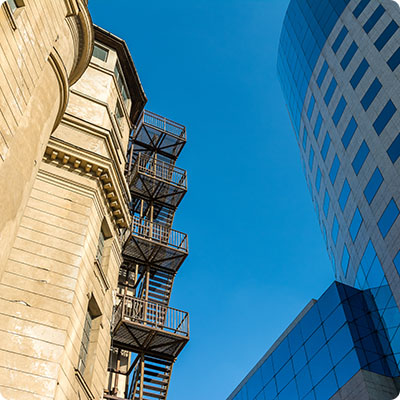The music
Charles Trenet
How could we not start with the most famous singer of the Aude! Louis-Charles-Augustin-Claude Trenet was born in Narbonne on 18 May 1913. In the 1930s, he discovered jazz, went to Paris, and the Perpignanese poet, Albert Baus, introduced him to Jean Cocteau and Antonin Artaud in the Paris of Montparnasse... Countless successes, worldwide hits, many of his songs are eternal. From Je chante (1937) to Jardin extraordinaire (1957), including Le Soleil et la Lune (1939) and Fidèle
(1971), his poetry has spanned the century with lightness, enchantment and humour. The constant dream in his texts and in his life allows him to keep all his youth and freshness. The nostalgia of the past, the joys and wounds are described in her songs, from the separation of her parents in her childhood, to her numerous moves from Perpignan to Berlin. After having travelled the world, the Fou Chantant returned to Narbonne for eternity. In November 2000, his birthplace in Narbonne became a small museum, located in the former rue de Nancy, now avenue Charles Trenet. Memories, objects, songs, the walk immerses the visitor in both the artistic and family life of Charles Trenet, evoking in particular his mother, the last resident of the place.
Martial Andrieu
Martial Andrieu, who now lives in Limoges, was born in Carcassonne in 1971. In 1990, he joined the singing and dramatic art classes of the Conservatoire national de région de Toulouse where he stayed for four years. During his military service, he was part of the French Army Choir, under the command of the Republican Guard. In 2003, Martial Andrieu obtained the gold medal for lyrical singing from the Conservatoire national de région de Limoges. He is also the biographer of the Carcassonne symphonist Paul Lacombe to whom he dedicated a book published in 2013.
Paul Lacombe
Born in Carcassonne in 1837, Paul Lacombe was a brilliant French symphonist who composed nearly 150 works. He learned to play the piano from his mother, before becoming a pupil of François Teysseyre, to whom we owe the creation of the first municipal school of music in Carcassonne. Paul Lacombe then took lessons in singing, fugue, counterpoint and harmony. In order to perfect his musical knowledge, he communicated, from 1866, with Georges Bizet who agreed to correct his compositions. In 1871, the Société nationale de musique was created on the initiative of Camille Saint-Saëns and Romain Bussine, and Paul Lacombe was a member from the beginning. It was in 1927, in his native town, that Paul Lacombe died, at the age of nearly 90.
Olivia Ruiz
It was under the sun of the South, in Carcassonne, that Olivia was born on January 1st 1980. Her father, Didier Blanc, was a musician and singer who is currently in charge of the Hangar Musical in Narbonne. At the age of 15, with her friends from Comigne, a small village in the Aude region, she formed the group Five. In 2001, Olivia participated in the first Star Academy TV show. Today, she is nation-wide famous. She won the Victoire de la Meilleure Artiste Interprète Féminine twice, both un 2007 and 2010. After selling more than 2 million records, the artist participated in the third opus of the musical tale Le Soldat Rose, whose songs were written by Alain Souchon.
Claude Marti, Occitan singer and poet
Born in Carcassonne in 1940, Claude Marti began playing guitar at the age of 17. He lived in the centre of Carcassonne at the time. In 1970, he recorded his first album. This was the beginning of a long career that would take this Occitan songwriter, with his poetic lyrics, all over Europe. Marti was also a teacher, storyteller and author of several books, the first of which, Homme d'Oc, was published in 1974.
René Coll, the man and the orchestra
What do "Champs Elysées", "Sacrée Soirée" and "Le Plus Grand Cabaret du Monde" have in common? It is the René Coll orchestra! A native of Aude, René Coll (1941 - 2009) never stopped going back and forth between the capital and Trèbes, his village of heart to which he remained faithful until the end. Born into a family of musicians, he quickly caught the ear of Marité and Gilbert Carpentier, then that of Jacques Chancel. He was also part of the "Grand Echiquier" orchestra. Then followed an eighteen-year career with Michel Sardou. This was followed by a long audiovisual career with Guy Lux, Michel Drucker, Jean-Pierre Foucault, Pascal Brunner and Patrick Sébastien.
It rains, it rains, shepherdess
This famous french nursery rhyme was written by Philippe Fabre d'Eglantine, a French actor, playwright, poet and politician. Born in Carcassonne in 1750 into a family of cloth merchants, he went to school and studied in Limoux and Toulouse, where he was considered a brilliant student. During the Revolution period, he was Danton's secretary and a close associate. His involvement in the liquidation of the Compagnie des Indes drew the wrath of Robespierre and he was excluded from the Jacobins. He was arrested and guillotined with other Dantonists on July, 6 1794 in Paris. This Carcassonne native, whose life was controversial, was also the author of the revolutionary calendar, Calendar of the French Republic.
Theatres
In the Aude, we bet more on theatres and cafe-theatres for lively outings, unless you go looking for big shows at the Narbonne Arena: this new venue dedicated to concerts but also to sports events and conventions, inaugurated at the end of 2019, is fully modular, with 1,000 to 5,000 seats. Narbonne has other venues dedicated to the performing arts such as the Café de La Poste, the Scène nationale or the Théâtre de l'Entresort.






























